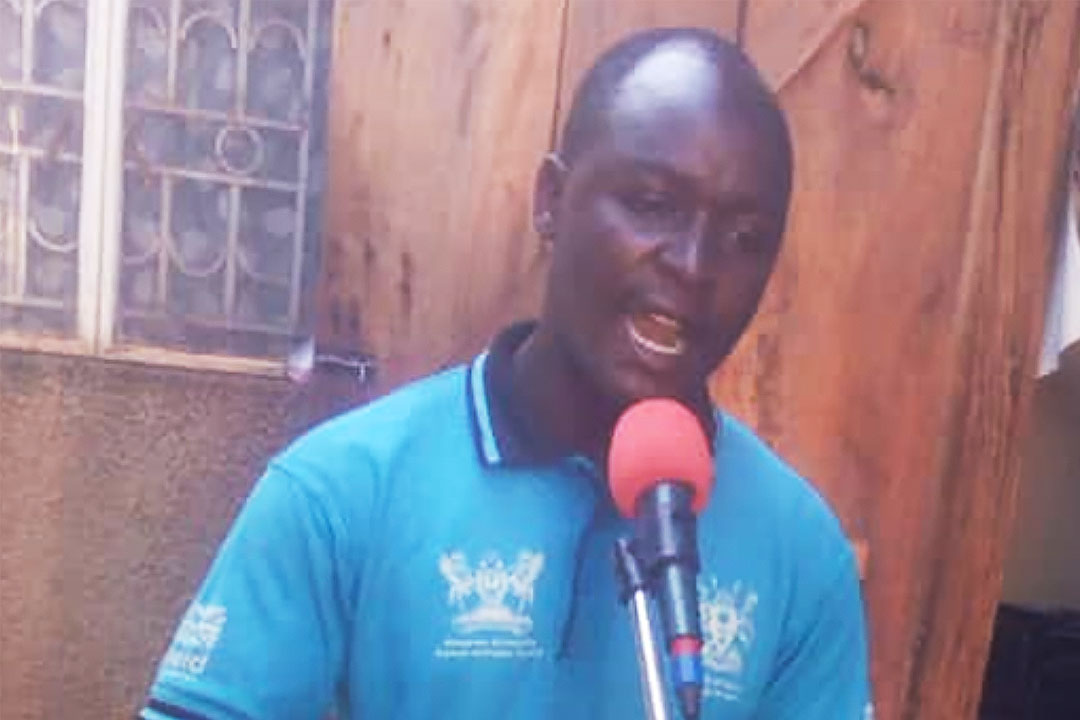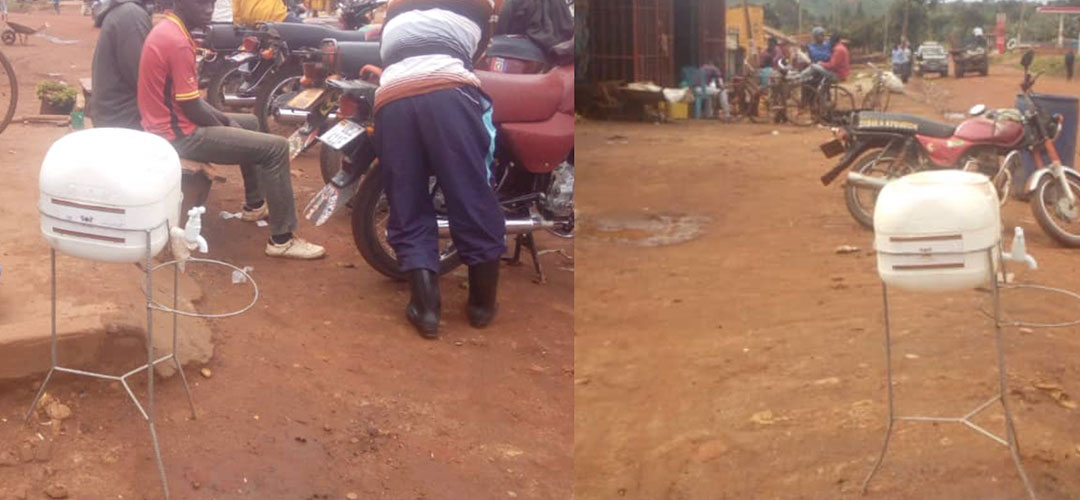
Henry Bugembe, a Community Health Worker, carrying out sensitization on a community radio in Nakawuka, Kajjansi Town Council, Wakiso District.
By Joviah Gonza, Grace Biyinzika Lubega, and Filimin Niyongabo
There have been over 860,000 people infected with COVID-19 and over 42,000 deaths globally, with more than 40 countries affected in the African region. Health professionals all over the world are racing to stop the spread of COVID-19, a pandemic which has greatly affected health systems in both the developed and developing world, with countries implementing various measures to reduce the spread of the virus. Since the start of the outbreak, many African countries have trained health practitioners on how to respond to the pandemic, and tested numerous suspected cases (among other interventions) but more effort is needed to contain the disease.
Uganda has over 40 million people, all of whom have to depend on a limited number of health professionals during this pandemic. As a result, community health workers (CHWs), who are also locally referred to as village health teams (VHTs), have had to step up and join health professionals in the fight against COVID-19. In Busiro South Constituency in Wakiso district, CHWs are volunteering to conduct community surveillance and supporting contact tracing as well as promoting sanitation and hygiene within their areas. CHWs have also conducted health education talks on signs, symptoms and prevention of COVID-19 using community radios and telephone calls / messages. For example, Bosco Matovu, a CHW Coordinator in Kasanje Town Council, and Henry Bugembe, a CHW Coordinator in Nakawuka Parish have extended this reach to public transporters such as taxi drivers, cyclists and motorcyclists (boda boda), sensitizing them on COVID-19, as well as advising them to adhere to the President’s directives including the ban on public transport as a measure to control the spread of the virus.
On 17th and 19th March 2020, all CHW in Bussi and Zzinga Islands on Lake Victoria in Wakiso district received a handwashing facility after a refresher training on handwashing with soap. These handwashing facilities were provided by Makerere University School of Public Health (MakSPH) in partnership with Buckinghamshire Healthcare NHS Trust, Nottingham Trent University, and the Commonwealth Pharmacy Association. Some of the CHWs have gone further to have some handwashing facilities in public places such as boda boda stages, markets, police stations, and health centres within their communities. The CHWs are also supporting in refilling the jerrycans with water, and providing soap so that community members can wash their hands frequently to prevent the spread of COVID-19.
“The hand washing facilities that were given to the VHTs have helped a lot in the fight against Corona virus. The VHTs, especially those that live in the center of the villages, have become an example to the rest of the community members. They have also allowed community members to use the hand washing facilities to wash their hands.”, exclaimed Bosco Matovu.
Ms. Aidah Nakate, a health practitioner at Kajjansi Health Centre IV who is part of the COVID-19 task force in Wakiso district says that the CHWs particularly in Kajjansi and Kasanje town councils have worked hard to inform them of any suspected cases of COVID-19 within the communities. This effort has been through phone calls to the concerned health workers, which has reduced the burden on the tollfree lines that were provided by the Ministry of Health to the public to contact them in case of any suspected cases (which sometimes were not available). She further expressed her gratitude for the 4 motorbikes that were provided to support the work of CHWs in Wakiso District by the partnership between Makerere University School of Public Health and Nottingham Trent University to facilitate movement of drugs, quarterly reports and other logistics within the community as well as emergency transportation of health practitioners, pregnant women and supplies.
“A few days ago, one of the VHT Coordinators called me and informed the in-charge and I of a suspected case of COVID-19 within the community. We were stranded on how we would get to the suspected case in time. Thankfully, the VHT Coordinator picked me up from the health centre on the motorbike and I was able to get to the suspected case in time. I do not know what we would have done if we did not have the motorcycle that was provided to us by Makerere University and partners.” narrated Ms Aidah Nakate.
As a way of reminding the CHWs to help their communities during this pandemic, Henry Bugembe routinely sends messages to fellow CHWs to remind them to continue engaging their communities to wash their hands with soap regularly, avoid touching the soft parts of their bodies particularly eyes, mouth and nose, and practice social distancing as advised by the Ministry of Health. Given that many people reside in rural areas with some having no access to television and other forms of media, CHWs have found themselves at the forefront of supporting them in the response against COVID-19 including encouraging them to contact the authorities in case of any household member with symptoms such as flu, cough and difficulty in breathing.
Dr. David Musoke, Lecturer in the Department of Disease Control and Environmental Health at Makerere University School of Public Health was pleased that the CHWs they had supported for over 8 years with a focus on training, supervision and motivation in partnership with Nottingham Trent University were greatly supporting the national efforts in the control of the Corona virus epidemic.
“The CHWs in our project areas are doing a good job in supporting their communities and health practitioners in response to the COVID-19 pandemic. Given that these CHWs are the health workforce closest to the community, they need to be better recognized and supported by the Ministry of Health and other stakeholders to be more actively involved in preventing the further spread of the virus across the country. It is pleasing to see the motorcycles we provided being used for fast response during this challenging time including identification of suspected cases and contact tracing.” said Dr. Musoke.
The partnership between Makerere University School of Public Health and Nottingham Trent University has been supporting CHWs in Wakiso district with funding support mainly from the UK Department for International Development (DFID), and most recently the Commonwealth Partnerships for Antimicrobial Stewardship Scheme (CwPAMS), an initiative of Commonwealth Pharmacists Association (CPA) under the Fleming Fund of the UK Department of Health and Social Care (DHSC), all managed by the Tropical Health and Education Trust (THET). This support has included capacity building through numerous trainings (most recently on Infection Prevention and Control particularly in the wake of COVID-19) as well as provision of motorcycles, t-shirts, umbrellas and solar equipment to support the work of CHWs in Uganda.


